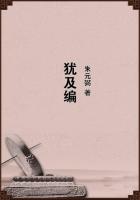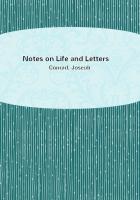Law implies a lawgiverand a tribunal capable of enforcing it and coercingits transgressorsBut there is no common lawgiver to sovereign statesandno tribunal has the power to bind them by decrees or coerce them if theytransgressThe Law of Nations is that collection of usages which civilisedstates have agreed to observe in their dealings with one anotherWhat theseusages arewhether a particular one has or has not been agreed tomustbe matter of evidenceTreaties and acts of state are but evidence of theagreement of nationsand do not in this country at least per se bind thetribunalsNeithercertainlydoes a consensus of juristsbut it is evidenceof the agreement of nations on international pointsand on such points,when they arisethe English Courts give effectas part of English law,to such agreement(p153).
Lord Chief Justice Cockburnon the other handafter discussing at lengththe views of thirty writers of different countries and commenting on thedifference between themgoes on to remark'Can a portion of that whichwas before high sea have been converted into British territory without anyaction on the part of the British Government or Legislature -by the mereassertions of writers on public law -or even by the assent of other nations?
And when in support of this positionor of the theory of the three-milezone in generalthe statements of the writers on International Law are reliedonthe question may well be askedupon what authority are these statementsfoundedWhen and in what manner have the nationswho are to be affectedby such a rule as these writersfollowing one anotherhave laid downsignifiedtheir assent to it-to say nothing of the difficulty which might be foundin saying to which of these conflicting opinions such assent had been given'(p202).
It would appearthereforefrom the authorities which I have cited thatin the two great English-speaking people of the worldone descended fromthe otherthere prevail twoand possibly threeopinions as to the obligatoryforce of International Law on individual statesThe lawyers and statesmenof the United States of America regard the acknowledgment of and submissionto the international system as duties which devolve on every independentsovereignty through the fact of its being admitted into the circle of civilizedGovernmentsAmong the English judgesLord Coleridge considers that theassent of a nation is necessary to subject it to International Lawbut thatin the case of Great Britain and all the other civilised European Powersthis assent has been given either by express action or declarationor atall events by non-dissentLastlyLord Chief Justice Cockburnwhile acceptingthe view that International Law became binding on states by their assentto itmanifestly thought that this assent must somehow be conveyed by theacquiescing state in its sovereign characterthrough some public actionwhich its Constitution recognizes as legally qualified to adopt a new lawor a new legal doctrinethat isin Great Britain by Act of Parliament orby the formal declaration of a Court of JusticeThe two opinions which Ifirst mentionedthat over and over again propounded in the American Digestand that of Lord Coleridgethough the language used is somewhat inexactand in one case too metaphoricalseem to me to express the doctrine of thewhole civilised world outside Great Britainand to conform to the historicalexplanation which I will presently place before youOn the other handtheopinion of Lord Chief Justice Cockburnwhich is one to which English judges,always busily occupied in interpreting and applying the laws of this country,are naturally liablewould have caused the greatest inconvenience if ithad been declared to be part of the law of EnglandIt practically is thatthe international rules could only have been imported into our system byone of the modern processes by which our institutions are changedIn thatcase each separate alleged rule of International Law would have had to beshown to have been engrafted on our legal system by the legislation of Parliament,by the alternative legislationwithin certain limitsof the English Courts,or by the conformity of the rule with some provable usageFor a ****** rulea most complicated rule would have been substituted.
The point immediately before the English Court of Criminal Appeal cannever arise again since the passing of the Territorial Waters Actbut itis conceivableif not likelythat we have not heard the last of the moregeneral question of principleI may say that it seems to me that the solutionof the difficulty can only be supplied by the historical methodAs I haveasserted many timesthese systems of law have not always been extended overthe countries in which they are found prevailing by what we call legislation.
In more ancient timesand to a great extent even at this dayin that Easternportion of the world in which so much of the usages of earlier mankind stillsurvivesystems of religion and systems of moralsgenerally drawing withthem some system of lawsgain currency by their own moral influencecertainminds being naturally predisposed to recede them acquiesce in them even withenthusiasmMrJustice Stephenin the controversial work which he calls'LibertyEqualityand Fraternity,has an eloquent passage on the subject.
'The sources of religion lie hid from usAll that we know isthat now andagain in the course of ages some one sets to music the tune which is hauntingmillions of earsIt is caught up here and thereand repeated till the chorusis thundered out by a body of singers able to drown all discords and to forcethe vast unmusical mass to listen to themSuch results as these come notby observationbut when they do come they carry away as with a flood andhurry in their own direction all the laws and customs of those whom theyaffect.What is here said of religionis true to a certain extent of morality.















